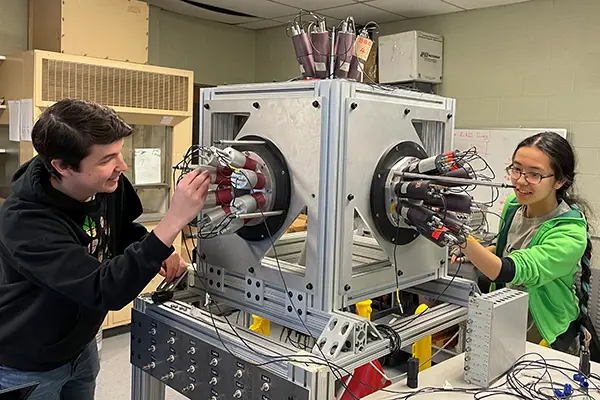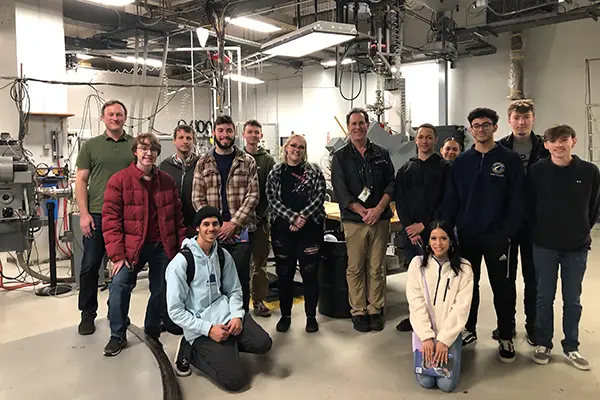Minority Community College Students to Gain Experience with Nuclear Science
 Image by Courtesy
Image by Courtesy
Former UML physics students Andrew Douglas '22 and Alice Zhou '23 set up gamma ray detectors in the research lab of the nuclear group.
08/31/2023
By Brooke Coupal
Anyone who has watched “Oppenheimer” will notice two common characteristics of the nuclear scientists highlighted in the summer blockbuster – they’re all white, and they’re all male.
Decades after J. Robert Oppenheimer’s time, there is still a lot of work to be done to increase diversity in the field.
“Not having diverse role models makes it very hard for underrepresented minorities to see themselves in this career path,” says Physics Asst. Prof. Peter Bender.
The nuclear group in the Department of Physics and Applied Physics hopes to change that by exposing minority community college students to nuclear science, in which careers range from nuclear medicine to fusion research. The initiative, called Nuclear Recruitment Through Undergraduate Research, or NURTURE for short, is being funded by a three-year, $315,000 United States Department of Energy grant.
 Image by Courtesy
Image by Courtesy
“We want to get the students’ foot in the door and allow them to see that this is a career for everyone,” says Partha Chowdhury, a physics professor and the director of the Radiation Laboratory. Chowdhury is the principal investigator on the project, with Bender and Physics Assoc. Prof. Andrew Rogers serving as co-principal investigators.
Beginning next summer, a cohort of six minority students from local community colleges will spend 10 weeks at UMass Lowell’s Radiation Laboratory, gaining hands-on nuclear science experience.
“We have a unique facility here that can be used to educate these students,” says Rogers, citing the campus’ 1-megawatt nuclear reactor and 5.5-megavolt Van de Graaff particle accelerator.
The community college students will work alongside professors, postdoctoral fellows and graduate and undergraduate students while receiving training on experimental nuclear science. They will get a stipend for participating in the program.
Additionally, the students will have opportunities to take a trip to a national laboratory for a research experiment, as well as attending a national nuclear science conference to broaden their horizons.
“Through these opportunities, we’re showing these students that this career path is possible,” Rogers says.
“We hope to get more people from a broader community funneled into nuclear science,” Bender adds. “We’re only going to grow stronger as a field with a more diverse crowd.”
